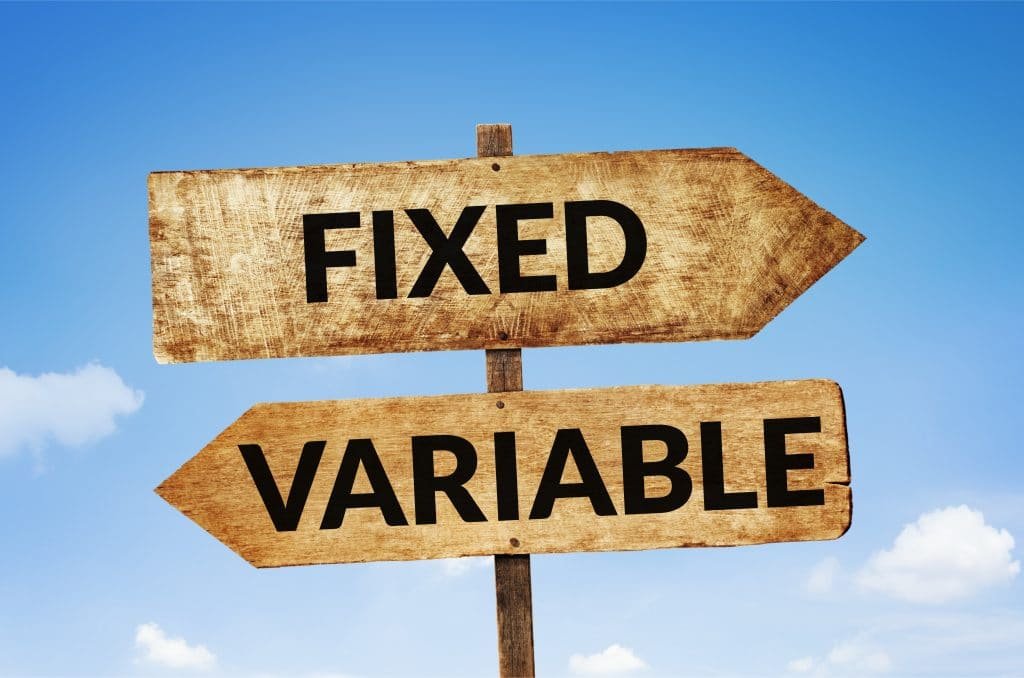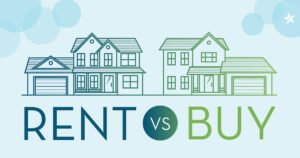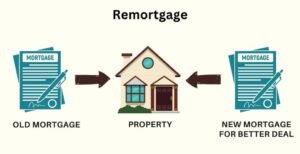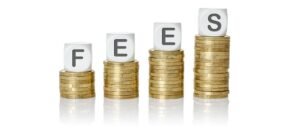
Imagine you’re at a crossroads, trying to decide which path to take towards owning your first home. On one side, there’s a well-lit path marked “Fixed-Rate Mortgage,” offering stability and predictability. On the other side, there’s a winding trail labelled “Variable-Rate Mortgage,” promising flexibility but with twists and turns of uncertainty.
As a first-time homebuyer in the UK, understanding the difference between these two mortgage options is crucial for choosing the right one for your journey. Let’s explore the contrasting landscapes of fixed-rate and variable-rate mortgages to help you make an informed decision.
Fixed-Rate Mortgages:
Imagine you’re baking a cake, and you know exactly how much flour you need. A fixed-rate mortgage is like that recipe – it gives you a set interest rate that remains the same for a certain period, usually between two to five years, or even longer.
Pros:
-
Stability: Your monthly payments stay the same, making budgeting easier. Even if interest rates rise, yours won’t budge.
-
Predictability: You know exactly what you’re signing up for from day one, which can provide peace of mind.
Cons:
-
Possibly Higher Initial Rates: Whilst fixed-rate mortgages offer stability, it can work positively or negatively, depending on your perspective. There are no guarantees that interest rates won’t drop during your fixed term. This means that whilst your interest rate and monthly payment is fixed during the fixed term period, there might be more attractive interest rates brought to market later which could offer a lower monthly repayment than your current fixed rate mortgage.
-
Early Repayment Charges: If you want to pay off your mortgage early or switch to another deal before the fixed term ends, you might face charges.
Variable-Rate Mortgages:
Now, imagine you’re at a buffet where prices can change at any moment. A variable-rate mortgage is like that – your interest rate can go up or down, depending on the changes in the Bank of England’s base rate or your lender’s standard variable rate (SVR). If your interest rate goes up, it means your monthly mortgage payment will increase. If the interest rate goes down, it means your monthly mortgage payment will decrease.
Pros:
-
Potential Savings: If interest rates go down, your mortgage payments could decrease, saving you money.
-
Flexibility: Some variable-rate mortgages allow you to overpay or switch to a fixed rate without hefty charges.
Cons:
-
Uncertainty: Your monthly payments can fluctuate, which might make budgeting more challenging, particularly if you don’t have much additional disposable income each month after all your expenses.
-
Rising Rates: If interest rates rise, so will your mortgage payments, which could put a strain on your finances.
Which One’s Right for You?
Choosing between a fixed-rate and a variable-rate mortgage depends on your preferences, financial situation, and how comfortable you are with risk. Whilst we cannot provide specific advice without knowing more about your circumstances, here are some basic guiding principles to consider.
-
You May Prefer to Go Fixed if: You prefer stability and want to know exactly what you’ll pay each month, even if it means potentially paying a bit more if interest rates were to go down in the wider mortgage market. You couldn’t realistically afford to pay more towards your mortgage each month if interest rates were to go up.
-
You May Prefer to Opt for Variable if: You’re comfortable with a bit of uncertainty and want the potential to save money if interest rates drop, even if it means your payments could rise in the future. You have enough disposable income left after your monthly expenses to comfortably absorb the risk of having to pay more each month for your mortgage if interest rates were to rise.
It’s worth noting that there are hybrid mortgage options available, such as tracker mortgages, which are variable but follow the Bank of England’s base rate closely.
Consider Speaking to a Mortgage Advisor:
Navigating the mortgage market can be complex, especially for first-time buyers. That’s where a mortgage advisor can help. They’ll take the time to understand your financial situation, goals, and preferences, then provide tailored advice to help you find the right mortgage for you.
If you’re unsure which type of mortgage is best suited to your needs, or if you’d like to explore your options further and compare mortgage quotes, don’t hesitate to reach out to us. We’ll help guide you through the process, provide expert advice, and offer mortgage quotes tailored to your situation.






